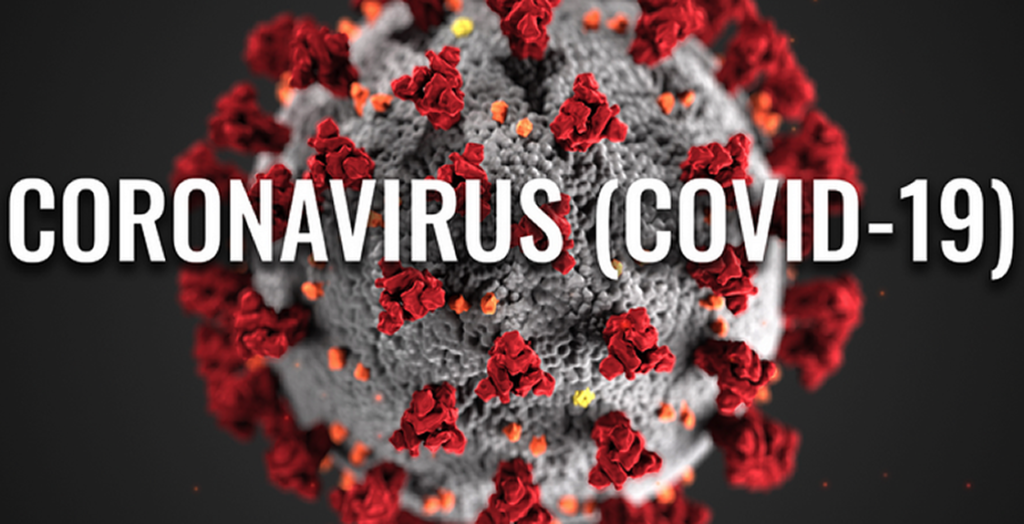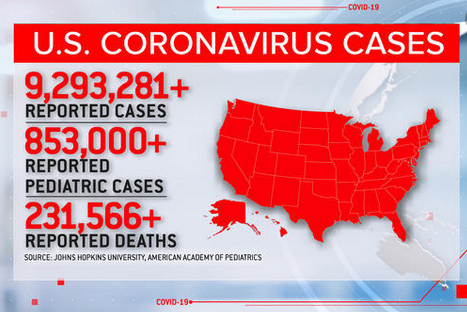
COVID-19 is caused by a coronavirus called SARS-CoV-2. Older adults and people who have severe underlying medical conditions like heart or lung disease or diabetes seem to be at higher risk for developing more serious complications from the COVID-19 illness.
While there is legislative precedent for the covid-19 vaccine mandates, legal and public health expert Joanne Rosen says other strategies could help U.S. states achieve widespread vaccination for COVID-19
The legal precedent for mandatory vaccinations dates back to a 1905 Supreme Court case after a smallpox outbreak in Massachusetts. But as the U.S. reaches important clinical milestones in its vaccine development efforts, questions arise relating to distribution, and who becomes vaccinated and when.
Legal and public health expert Joanne Rosen, a senior lecturer in Health Policy and Management and the Center for Law and the Public's Health, spoke with Public Health On Call podcast host Stephanie Desmon for a recent episode about the precedent of vaccine mandates. She also discusses the history of vaccine exemptions and strategies states could consider to achieve widespread vaccination for COVID-19.
Here is a little knowledge on the invisible enemy:
The COVID‐19 epidemic was not the first coronavirus epidemic of this century and represents one of the increasing number of zoonoses from wildlife to impact global health. SARS CoV‐2, the virus causing the COVID‐19 epidemic is distinct from, but closely resembles SARS CoV‐1, which was responsible for the severe acute respiratory syndrome (SARS) outbreak in 2002. SARS CoV‐1 and 2 share almost 80% of genetic sequences and use the same host cell receptor to initiate viral infection. However, SARS predominantly affected individuals in close contact with infected animals and health care workers. In contrast, CoV‐2 exhibits robust person to person spread, most likely by means of asymptomatic carriers, which has resulted in greater spread of disease, overall morbidity and mortality, despite its lesser virulence. We review recent coronavirus‐related epidemics and distinguish clinical and molecular features of CoV‐2, the causative agent for COVID‐19, and review the current status of vaccine trials.
In early December 2019, Li Wenliang, a physician from Wuhan, a large metropolitan area in China's Hubei province, reported in a group chat that he noticed a series of patients showing signs of a severe acute respiratory syndrome or SARS‐like illness which was subsequently reported to the WHO Country Office in China on December 31, 2019. On January 12, Chinese scientists published the genome of the virus, and the World Health Organization (WHO) asked a team in Berlin to use that information to develop a diagnostic test to identify active infection, which was developed and shared 4 days later. On January 30, 2020, the outbreak was declared by the WHO a Public Health Emergency of International Concern (PHEIC). The first case of the disease due to local person to person spread in the United States was confirmed in mid‐February 2020. On March 11, WHO declared COVID‐19 a pandemic.
The new coronavirus is the disease-causing agent of the viral disease that has become a global pandemic, and it has induced the global economic recession. Known as COVID-19, this disease has threatened the public health on a large-scale and forced the authorities across the world to go for the long-term lock-down to break its chain of progression. According to the UN Secretary-General, the situation due to the COVID-19 is reminding of the crises that had occurred during World War II. Globally, more than 16 lakhs people have been infected by this disease and it has caused over 1.46million deaths worldwide.
Origin of COVID-19:
The COVID-19 had its origin in the Chinese city of Wuhan in the last month of 2019 when the local health workers stated that this viral disease was passed from the animals to humans. Since then, it has spread to different countries across the world. At present, the disease is prevalent in over 100 countries across the world. Being a new virus, there is no specific vaccine or medicine available over-the-board to prevent this viral disease. Since December last year, there have been many attempts to understand the novel coronavirus. Despite the availability of a plethora of data available, it is not known much about this newly mutated coronavirus. In this article, we are going to walk you through some unknown things and facts about the virus.

Once a COVID-19 vaccine or vaccines are made available, could states mandate that people get them?
The short answer is yes. States have the legal and constitutional authority to require that the people who live in that state be vaccinated, or to introduce a vaccine mandate.
The authority for the state being able to compel vaccination—the affirmation of that authority—goes all the way back to a U.S. Supreme Court case in 1905 called Jacobson v. Massachusetts. That case arose in the midst of an outbreak of smallpox in Cambridge, Massachusetts, in 1902. Cambridge introduced an ordinance requiring all adults be vaccinated or re-vaccinated against smallpox. If they didn't “get vaccinated”, they would have to pay a fine of $5.
Jacobson was a resident of Cambridge who, for a number of reasons, objected to the vaccination mandate and brought a lawsuit against Massachusetts for the mandate. He raised a number of arguments, including one that his constitutionally protected liberty interests were being infringed by this mandate.
In that case, the Supreme Court said that states have under their police powers, which is under the Constitution, the authority to enact reasonable regulations as necessary to protect public health, public safety, and the common good. Vaccination mandates constitute exactly that kind of permissible state action to protect the public's health. Even though it's 115 years old, this continues to be the benchmark case on the state's power to mandate vaccination.
In response to the argument about this individual liberty interest, the court said that sometimes individual interests might have to yield to state laws that endeavor to protect the health of everybody—the “common good.” The court said: “The rights of the individual may at times, under the pressure of great dangers, be subjected to such restraint to be enforced by reasonable regulations as the safety of the general public may demand.”
So, yes: Once COVID-19 vaccines are available, states could elect to require that people who live within that state be vaccinated.
How might states enforce vaccination of adults?
By and large, our immunization schedule begins as children, and we have to show proof of vaccination to go to school. It is a more complicated administrative manner to have a vaccine mandate that applies to adults because there isn't a point of common intersection with the state or with some agency of the state the way we have with children. I don't have a clear idea of this, but that would be something that states would have to work into a mandate. A requirement that people be vaccinated is only as effective as the way of ensuring that they are.
That also raises issues that the vaccine has to be made available without charge or in a way that allows people to get coverage for it if it's not covered by their insurance. Again—how are we able to keep track?
The other advantage that school-based proof of vaccination offers is for people who have some medical reason to not be vaccinated. All vaccine mandates include a medical exemption for people whose health would be imperiled because of an allergy to something in the vaccine or because they are immuno-compromised or any other reason. When you go to school and show your proof-of-vaccination certificate or show that you've been exempted and you're not vaccinated, it means that public health offices have a record of who is and who isn't vaccinated. In the event of an outbreak of one of these vaccine-preventable diseases, we can identify and isolate the people who haven't been vaccinated and who are obviously at higher risk for being infected.
Can private employers mandate a vaccine?
They can and they have. It's very common in particular sectors. An employer has to have a “reasonable basis.” If you worked in retail, I'm not sure a corporate entity could require that. They may want you to and recommend it, but it wouldn't be reasonably related to the requirements of their job.
But in sectors in which the employees are themselves at greater risk of contracting vaccine-preventable illnesses or who work with populations that are especially vulnerable if they do get sick, like hospital workers, health care workers, and people who work in [long-term care] facilities, employers have required that their staff be vaccinated against the flu each year.
Another thing that states could do, short of a requirement across the board that everybody be vaccinated, is they could begin with a mandate that focuses on those sectors—people who are themselves at greater risk or who work in proximity with vulnerable populations.
We don't want the employees themselves getting sick and being a bridge, or “vector,” to infecting others who are vulnerable. People may object, but some more targeted form of vaccine mandate may make sense and also be possible.
This article originally appeared online as part of the Bloomberg School of Public Health's COVID-19 Expert Insights webpage.

Founder of Lazarus Enterprises Group and head of strategy at Apex Media 365, also Apex Marketing Pro, a leading digital marketing firm.
We developed a system to help small businesses, and local companies connect with potential clients, and customers who truly need their goods or services, which will in-turn increase the company’s net worth with a lot more ease, and control.
We do this utilizing Gorilla marketing tactics, and technology to measure a return on investment.
To schedule a free 30-minute Marketing Tune-up, call us: 1-888-256-4202
